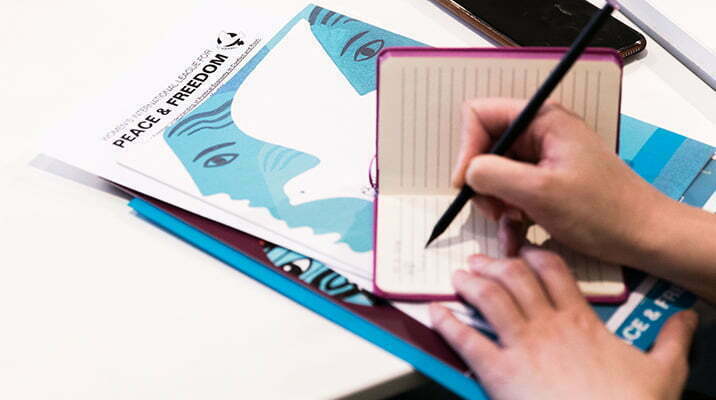In 2012, the women’a movement in Lebanon has been actively engaged in setting the priorities for shaping a Women and Peace Agenda in Lebanon.
Two national consultations were held by ABAAD Resource Center for Gender Equality in partnership with WILPF International in May and November respectively.
These focused on current challenges and opportunities related to women, peace and security in Lebanon, and identifying key national priorities related to women’s rights and their participation in peace and security issues.
These national consultation processes were aimed at reflecting on current opportunities and challenges pertaining to women’s participation in government reform processes.
They sought to draw a set of recommendations to advance women’s participation in issues related to peace and security.
Of the key priority areas identified nationally in Lebanon, advocating for women’s active participation at all levels of the society (including representation in the executive and decision-making boards of political parties) and not only in the parliament were deemed crucial to the advancement of women at this level.
Promoting gender equality in the areas of politics as well as in society is a precondition for achieving meaningful development. Moreover, democratic governance cannot be implemented without gender equality in political participation.
Although many people in Lebanon may agree that both men and women should have equal rights and opportunities to participate fully in all aspects and at all levels of political processes, it is often more difficult and challenging for Lebanese women to access political structures and exercise these rights.
As a result, women are discriminated against when it comes to active roles in society and politics. They are not given the chance to use their experiences, talents, and perspectives in meaningful decision-making roles.
As a result, specific strategies must be adopted to foster women’s effective participation. These must include compliance with international agreements, quotas to increase women’s participation in political party structures and representation, action to overcome gender disparities in politics and decision-making mechanisms, encouraging a new generation of women politicians, providing women and women’s organizations and networks with access to media, and work with men to promote women’s active participation at all levels of the society and politics.
Other key priority areas were as follows:
- Ensure women’s participation in decision-making processes in post-conflict situations and peace building efforts.
- Monitor, document and report all gender relations violations, specifically those related to peace and security.
- Collaborate and coordinate across all sectors, ministries, research institutes, universities and NGOs.
- Educate younger generations on peace, human rights, and conflict resolution and democracy practices.





